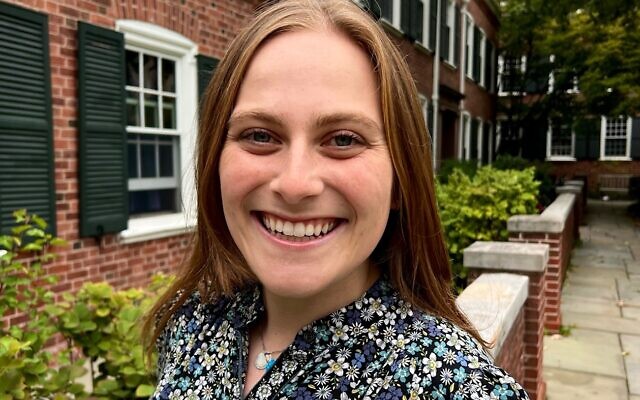A Passover Message from Maayan Schoen
For our Passover holiday issue, we invited members of our community to share their responses.
Maayan Schoen is a senior at Atlanta Jewish Academy.
The poetry of Yehuda Amichai, an Israeli poet who fought in many of Israel’s wars, has been a source of catharsis to me at points of inflection in my life this year. Fittingly, the following poem was used as a prompt at a Shabbat reunion I attended for my seminary right after a big life change.
There are many insights to draw from it; I have been thinking about how it relates to freedom in anticipation of Pesach:
The Place Where We Are Right
From the place where we are right
flowers will never grow
in the spring.
The place where we are right
is hard and trampled
like a yard.
But doubts and loves
dig up the world
like a mole, a plough.
And a whisper will be heard in the place
where the ruined
house once stood.
We are not free, I believe, when we do not allow for doubts and loves to dig up the world. We are not free when we must always be right, must always be certain, nor when we cannot let go of something we thought we were right about but are not.
In our faith, our relationships, our dreams, goals, willingness to take part in community, and other central areas of meaning in our lives, what space do we give ourselves for doubt and to carry on comfortably when we have it, and how quick are we to give up on something entirely because of doubt? From the place where we are right, flowers will never grow: I’d like to suggest that we are not free when we limit ourselves to operating only when we know (or feel) things with certainty.
And, aren’t we making a more meaningful choice when we choose to believe, or to love, or to partake when we aren’t able to supply all of the answers like we would on an exam? Acts of faith are such because of the inability to know some aspect of the subject/object with certainty, and our choice to act anyway.
I am not saying to ignore the little voice in your head that tells you when something is wrong. I am saying not to let that voice dominate and render you unfree. It is important to be a critical thinker and to act with purpose. But, as I have seen with friends who struggle with faith and relationships, you are in more danger when you think something in absolute terms — the total absence of doubt — and then confront a crisis of faith when you find out you were wrong — than when you are flexible with your thinking all along and allow for doubt. It is harder to be rocked by new information when you are free and critical in your thinking to begin with.
One of the reasons I bring up this topic is because I know that many people are instinctively reaching towards practices, communities, and labels in the Jewish world that they might have eschewed before the present crisis of antisemitism, but some might hesitate, not sure if they believe in this or that, identify with every aspect of some label, or are “Jewish enough” to engage in that way. I encourage you not to let that stop you, but to embrace it as a sign to go toward that thing. I think it can be a goal to get to a place where you feel no hesitation to believe, love, or act despite the presence of doubt (as long as there is also love).
Leave your struggles behind — if you want to believe in God, but you have certain doubts that you don’t know how to address, you are free to believe anyway. If you want to love someone, but are plagued by what-ifs, love them anyway. If you want to take on more Jewish practices, but you’re not sure about others, or you’re not sure if that’s “you,” freely embrace these choices that belong to you. If you want to be a Zionist but you’re hesitant about some aspect of Israel’s government or what other people might think, you are free to support Israel. And so on.
Allow doubts and love to mingle together to create the conditions for life — to dig up the world and plant it again.
Maayan Schoen studied in the Migdal Oz Beit Midrash for Women in Israel and recently graduated from Yale University. She now lives in Jerusalem and is chief of staff for Deputy Mayor of Jerusalem and Special Envoy for Innovation Fleur Hassan-Nahoum.




comments